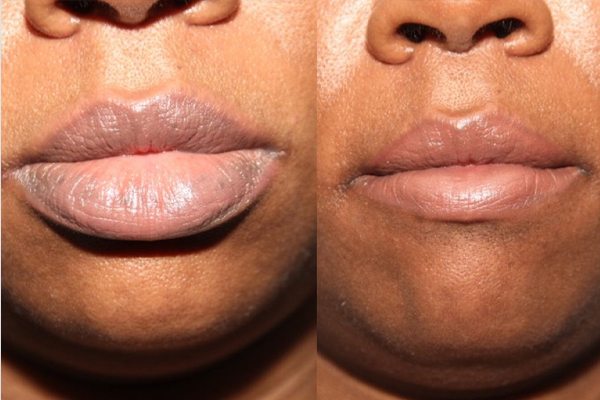Lip reduction
Lip reduction is a cosmetic surgical procedure designed to reduce the size of overly large or disproportionate lips. It aims to achieve a more balanced, symmetrical, and natural appearance while addressing functional or aesthetic concerns.
Indications for Lip Reduction
- Aesthetic Concerns:
- Overly large or protruding lips that are not in harmony with other facial features.
- Asymmetry:
- Disproportionate lips caused by genetics, trauma, or prior cosmetic procedures.
- Medical or Functional Issues:
- Difficulty speaking, eating, or maintaining lip closure due to excessive lip size.
- Reversal of Augmentation:
- Reducing volume after unsatisfactory filler or implant results.
Procedure Overview
1. Consultation and Planning
- Discuss goals, expectations, and any medical history that may affect the procedure.
- Physical examination to assess lip anatomy and determine the amount of reduction needed.
2. Anesthesia
- Typically performed under local anesthesia with sedation.
- General anesthesia may be used for more complex cases.
3. Surgical Technique
- Incisions:
- A horizontal incision is made inside the lips (along the inner mucosa) to minimize visible scarring.
- Tissue Removal:
- Excess fat and tissue are carefully excised to reshape and reduce lip volume.
- Closure:
- Incisions are closed with dissolvable sutures.
4. Duration
- The procedure typically takes 30 minutes to 2 hours, depending on the extent of the reduction.
Recovery Process
- Immediate Post-Surgery:
- Swelling, mild bruising, and discomfort are common and subside within 1-2 weeks.
- Cold compresses can help manage swelling.
- Diet and Activity:
- A soft or liquid diet is recommended for the first few days.
- Avoid strenuous activity and lip movement during the initial healing phase.
- Healing Timeline:
- Most swelling resolves within 2 weeks.
- Full results are visible after 2-3 months as tissues settle.
Benefits of Lip Reduction
- Creates a more balanced and proportionate facial appearance.
- Improves lip symmetry and definition.
- Reduces functional issues related to overly large lips.
- Minimal visible scarring due to internal incisions.
Risks and Complications
- Infection: Rare and preventable with proper care.
- Scarring: Typically minimal and hidden inside the lips.
- Asymmetry: May require minor revision surgery.
- Temporary Numbness: Sensation usually returns as healing progresses.
Ideal Candidates
- Individuals with overly large or disproportionate lips.
- Those in good overall health with realistic expectations.
- People seeking a permanent solution for lip size reduction.
Cost Factors
- Surgeon's expertise and location.
- Facility and anesthesia fees.
- Complexity of the procedure.



